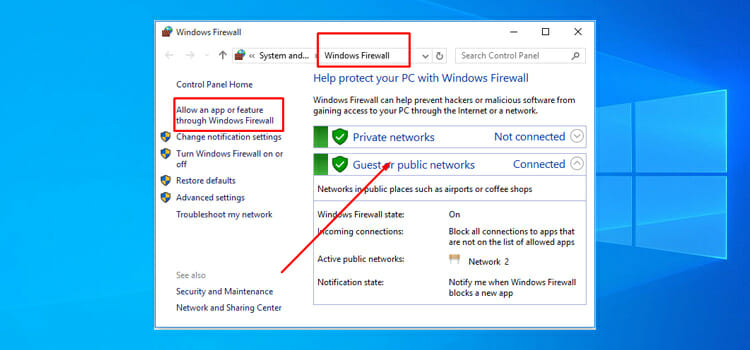Understanding Online Scams and Legal Protections
Given the current pervasiveness of internet scams in the cyber landscape, individuals who are regularly online are constantly at risk for identity theft and fraud. That’s why this guide aims to furnish you with the means to detect, evade and repulse online attacks – to make your digital time as safe as possible.

Identifying Common Online Scams
Online scams come in various forms, each designed to exploit unsuspecting victims. Key types include:
- Phishing Attempts: These scams impersonate a trusted contact or entity to get you to reveal sensitive information. Beware of unsolicited emails, phone calls, or instant messages that ask you to confirm your personal information or redirect you to a link or attachment.
- Auction and E-Commerce Frauds: Scammers often create fake listings for in-demand items, only to vanish once payment is made. Always verify the seller’s credibility and review platform safeguards before making transactions.
- Identity Theft: This involves unauthorized access to your personal information, leading to financial fraud and other crimes. Protect your data by using secure networks and monitoring financial statements regularly.
Steps to Enhance Your Online Safety
Protecting yourself from online scams involves proactive measures:
- Strengthen Your Digital Hygiene: Use complex, unique passwords and enable two-factor authentication across all accounts. Regularly update your software to protect against vulnerabilities.
- Stay Informed: Educate yourself on the latest scam tactics and signs of fraudulent activity. Knowledge is your best defense against evolving threats.
- Exercise Caution: Treat unsolicited communications with skepticism. Verify the authenticity of requests for personal or financial information.
Embracing Technological Solutions for Enhanced Security
Today, in the digital age, the ever-changing use of technology is a significant factor for keeping away from fraudsters. Utilizing advanced security solutions can add an extra layer of protection to your online activities:
- Adopt Anti-Phishing Software: These tools can identify and block phishing attempts before they reach you, significantly reducing the risk of falling victim to these scams.
- Use Virtual Private Networks (VPNs): VPNs encrypt your internet connection, making it more difficult for scammers to intercept your data or track your online activities.
- Implement Security Extensions and Plugins: There’s a plethora of extensions available for many browsers that can warn you when you’re visiting a scary site or block malicious content.
Combined with other impervious digital habits, these technical fixes can make you much less vulnerable to scams.
Navigating the Legal Landscape
The law protects you from being scammed online, with stiff penalties for anyone found guilty. Know your rights, including the remedies at law:
- Legal Consequences: Lenient penalties should not be meted out to scammers. Online fraud should come with hefty penalties, not just fines but also time in prison. This measure will signal how seriously the law takes its role as a consumer’s watchdog. In addition to understanding the legal consequences of online scams, it’s crucial for individuals to have access to resources that can help them verify the backgrounds of those they encounter online. For those seeking more information about individuals potentially involved in scams, resources that allow you to look up inmate records can be invaluable. These tools can provide essential information that helps in making informed decisions, further safeguarding against potential fraud.
- Seeking Legal Help: If you suspect you’ve been targeted by a scam, consulting with a legal professional can provide you with the guidance and representation needed to pursue justice.
Reporting and Recovery: Taking Action
Immediate action can mitigate the impact of a scam:
- Report Suspected Scams: Alerting authorities and online platforms about suspicious activity helps protect the wider community and contributes to the fight against cybercrime.
- Secure Your Accounts: If compromised, change your passwords immediately and monitor your accounts for unusual activity.
- Financial Recovery: While recovering lost funds can be challenging, promptly contacting your bank or financial institution can increase the chances of restitution.
Building a Community Defense Against Scams
In the fight against online scams, there’s strength in numbers. A community-wide spirit of shared surveillance and mutual support is likely to strengthen our overall defense against cyberattacks. Here’s how you can contribute to and benefit from community efforts:
- Engage in Peer Education: You can aid in the fight against door-in-the-floor scams by sharing information and warning others you know about this fraud. Sending out an email to friends, family and colleagues, or hosting information sessions or awareness groups on Facebook, Twitter or LinkedIn are easy ways to get critical safety information out there.
- Support Victim Recovery: The aftermath of a scam can be daunting. Instead, create a space that allows victims to share their stories and heal. If something like this happens to the women you’re with, creating a culture where it’s encouraged to report it and facilitating that reporting process as well as the aftermath is important. It’s your responsibility as a male traveler to send the message that this isn’t something that happens in such a place, that this isn’t the norm for women who travel to this wonderful place.
- Collaborate with Local Authorities: Building relationships with local law enforcement and participating in community watch programs can enhance the effectiveness of scam prevention efforts. These collaborations can lead to more rapid responses to emerging threats.
- Leverage Community Resources: Many communities have resources dedicated to scam awareness and prevention. If your library, neighbors or a local community center or your favorite non-profit doesn’t sponsor workshops to boost your scam-literacy skills or if they don’t provide materials and information that help you arm yourself against identity theft and scams, make it your mission to request them. Ask your lawmakers and retailers to hold working partnerships with regulators to better protect consumers. As a consumer and a citizen, you have rights. You also have a responsibility to help improve the regulatory system.
By adopting a communal response, not only do we protect ourselves, but also guard a few more inches of the great sea of the internet against scammers. That’s a big deal, because fewer scams will be successful, and a culture of security will grow. It’s this self-interest that drives a wedge in scammers’ hearts.
Conclusion: Empowering Your Online Journey
Knowing the form and methods of online scams, as well as protecting yourself against them, is critical to maintaining a secure online life. But, with a little guidance in how things work, venturing online can be educational and entertaining. Keep your head on in a tricky environment. Stay informed, keep up your digital hygiene, and learn how to fight fire with fire. All that’s needed for a secure online life. Remember, you are not alone in this fight—resources and support are available to guide you through any challenges you may encounter. Together, we can create a safer digital environment for all.
Subscribe to our newsletter
& plug into
the world of technology





